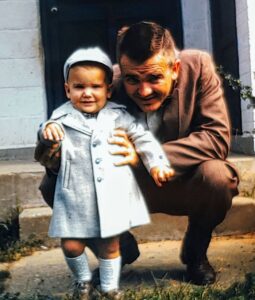DIY Estate Planning Pitfalls
Find Us Online
Building wealth is only half the job. Protecting wealth for your loved ones and yourself is equally important. Through estate planning, business planning, and asset protection, our firm will help you protect everything you love — family, friends, and favorite charities. For more information, be sure to visit our website, where you will have access to our blog, events schedule, and a complimentary newsletter subscription!
DIY Estate Planning
Being economically prudent can be a virtue. There is certainly wisdom in having a budget and weighing the cost-benefit of every purchase before parting with your hard-earned cash. However, pinching pennies can backfire and cost you more in the long run. Sometimes, hiring a professional is the best choice.
Unless you are a certified electrician, wiring your house could send your dream home up in smoke as you stand powerless to fix your faulty work. Do-it-yourself estate planning presents a similar risk. Without a thorough understanding of state and federal laws governing taxes and asset transfers, you could endanger your estate and loved ones with the plan you created.
Estate planning mistakes are easier to make than you might think. Consider these eight basic DIY estate planning pitfalls.
- Not using available tax-effective transfer strategies.
Lifetime giving and estate planning provides means for transferring assets to loved ones. However, both of these can trigger taxes when done without the knowledge of current laws. The estate tax exemption threshold has seen significant changes throughout the years. Only estates with total assets exceeding $12.06 million for an individual and $24.12 million for a married couple are subject to federal estate taxes. Certain states also impose their state estate taxes and have their own rules regarding exemptions. Lifetime giving can serve the dual purpose of transferring assets while reducing your taxable estate. However, there is an annual limit on how much you can give a person without triggering a gift tax. At present, that amount is $16,000. Going over this amount when making lifetime gifts will reduce your federal estate exemption at death. Filling out the appropriate tax forms and acting under current tax law is vital to tax-efficient planning.
- Not reviewing and updating estate planning documents.
Creating a will and trust is the start of a good estate plan. An effective estate plan is designed to satisfy your current needs and the relevant laws. However, laws and family circumstances change over time. If your estate plan does not change with legal and family changes, then your estate plan could undermine your own goals. To avoid leaving a mess for your loved ones, review your estate plan every few years and make the appropriate changes.
- Using a “one size fits all” plan.
You can find generic wills, trusts, and other estate planning documents online. These documents may seem like a fairly simple solution to creating an estate plan. Unfortunately, like deceptive clothing labels, “one size fits all” estate plans cannot meet the needs of every individual. If you have minor children or a shady son-in-law, you may need more advanced legal planning to protect the inheritance for and from your financially immature heirs. While a simple will may work for someone else, your family might require the probate avoidance privacy of a funded revocable living trust with inheritance protection. A penny of prevention is worth a pound of cure!
- Selecting the wrong executor or trustee.
The roles of executor and trustee carry considerable responsibility. We spend time on client meeting exploring the candidates. Not everyone is capable of filling these roles. The person you select should be someone who is mature, organized, and will likely outlive you. If the dead could execute estates or administer trusts, there would be no need for you to name someone other than yourself. An experienced estate planning attorney can help you evaluate your options.
- Not funding your trust.
A revocable living trust can be an effective estate planning tool. It allows you to distribute assets to your heirs while bypassing lengthy and public probate proceedings. A trust gives you greater control over the management of these assets and how thy are to be used to benefit your successors. However, the trust can only control and distribute assets when it has title to the assets. You will need to “fund” your trust. However, not all assets need to be titled to your trust. Certain assets transfer through their own beneficiary designations. In fact, placing certain assets in your trust could have negative consequences. There is more to “funding” a revocable living trust than any DIY estate planning website can properly advise.
- Overlooking witness qualification.
Estate plans are not legally binding simply because you typed out your wishes and printed them from your computer. For a court, bank, or hospital to accept your documents, the documents must be “legally” executed with all the required formalities. For example, the requirements for a valid last will and testament vary from state to state, especially regarding witnesses and notaries. If your DIY estate plan is not “technically” legal, then it is not legal. The good news? When the estate plan fails to work, you will not know it. You will be dead. The bad news? The loved ones you leave behind will be left with your estate mess to clean up. Is this how you want to be remembered?
- Lack of Assistance when it is needed most
The quality of the estate plan you put in place is tested when it is needed: When you are incapable of helping tg guide and protect your loved ones. At death or disability, how well will your planning be implemented? What needs to be done at these stressful times is where the rubber meets that road.
These mistakes are easy to make if you do not work with an experienced estate planning attorney. Spending money to work with a professional in any field is a small price to pay for peace of mind.
Upcoming Seminars
We are having basic estate planning seminars. If you want a refresher on your own planning, want to introduce your family to what you have done, or want to give a friend a chance to find out about their options for planning, please pass this on.
To find out more about the seminar, please click here.
THESE SEMINARS ARE AT OUR OFFICE NEXT TO THE POST OFFICE ON MAIN STREET
Tuesday, July 19 10:00 AM-11:30 AM
Thursday, July 21 10:00 AM-11:30 AM
Wednesday, August 3 2:30 PM-4:30 PM
Tuesday, August 16 1:00 PM-2:30 PM
Seating is limited, so call at 301-776-7900, or go to the events tab on our website to reserve your seat
Light refreshments will be served. We hope you can make it to one.
Copyright © Integrity Marketing Solutions. All Rights Reserved.


 often see on Facebook frequent tributes for deceased mothers or fathers and am at a loss for what to say to acknowledge the loss and void involved. Now I understand a bit more of the ache of grief. It was a great blessing to our family to Dad for so long. It is a gift granted to me that a few of my friends or clients.
often see on Facebook frequent tributes for deceased mothers or fathers and am at a loss for what to say to acknowledge the loss and void involved. Now I understand a bit more of the ache of grief. It was a great blessing to our family to Dad for so long. It is a gift granted to me that a few of my friends or clients. warming, but heat doesn’t give me the thrill it once did. Have I become the old man next door who will keep the ball if it comes into my yard? Yep.
warming, but heat doesn’t give me the thrill it once did. Have I become the old man next door who will keep the ball if it comes into my yard? Yep.







 will wind up your affairs and how the assets will be distributed. How much effort this takes depends upon many different factors: estate size, types of property owned, the state of residence, and the number of heirs, to name but a few. Also, keep in mind that These duties are usually carried out, even with the best of planning, by someone who is grieving and dealing with overwhelming emotions, both their own and often those of many other family members.
will wind up your affairs and how the assets will be distributed. How much effort this takes depends upon many different factors: estate size, types of property owned, the state of residence, and the number of heirs, to name but a few. Also, keep in mind that These duties are usually carried out, even with the best of planning, by someone who is grieving and dealing with overwhelming emotions, both their own and often those of many other family members. created to distribute assets after death, the trustee follows instructions for property distribution to beneficiaries. Trust administration responsibilities vary greatly. One trust might instruct the trustee to make sure beneficiaries reach certain milestones before receiving all or part of their inheritance. Another trust may direct a percentage of the legacy to be released at certain ages. Still, other trusts continue to administer the estate for multiple generations.
created to distribute assets after death, the trustee follows instructions for property distribution to beneficiaries. Trust administration responsibilities vary greatly. One trust might instruct the trustee to make sure beneficiaries reach certain milestones before receiving all or part of their inheritance. Another trust may direct a percentage of the legacy to be released at certain ages. Still, other trusts continue to administer the estate for multiple generations.
 proud and grateful to be joining Tom, our team, and the many friends who trust us to protect their legacies. When I first approached Tom to ask him what the practice of estate planning was like, he mentioned the long relationships of trust that we can build with our clients. The second was that he helped people to live with the end in mind. I knew then that was the kind of work, and the kind of firm, that would be an excellent fit for me.
proud and grateful to be joining Tom, our team, and the many friends who trust us to protect their legacies. When I first approached Tom to ask him what the practice of estate planning was like, he mentioned the long relationships of trust that we can build with our clients. The second was that he helped people to live with the end in mind. I knew then that was the kind of work, and the kind of firm, that would be an excellent fit for me.


 version of our newsletter should be so captioned.
version of our newsletter should be so captioned.